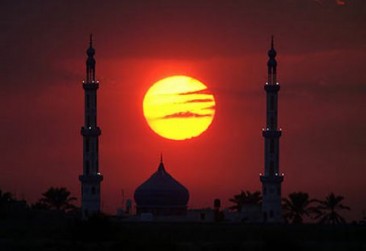We are told that Ramadan is the month of the Quran. It is a month when many aim to read the Quran from cover to cover. While this is a commendable task and has many benefits, the Quran is a book to reflect on, ponder and take action. It is an instruction manual for our lives, which we must not only read but also implement. This article will reflect on two ayats, which are particularly relevant for this month.
In Surah At-TakwirAllah says,
“So where are you going?” [81:26]
In such a short ayat, Allah asks us a powerful question. Where are you heading? What are you doing with this life that Allah has given you? What are you doing with the blessings He has provided? How are you using it? For what purpose? Before we set out on a journey, we decide where we are going, pack any provisions that are required, we plug in the details in our satellite navigation systems and we follow the directions. This is only for small journeys. What about the journey of our life?
Ramadan is a time to reflect and reevaluate how we are progressing and in what direction we are heading. Time constantly ticks away, so we are either actively moving forward or moving backward. Islam is a constant struggle to do good deeds against our own nafs. Allah says that :
“…We are constantly testing our servants.” [23:30]
Therefore, we have to be in a constant state of striving. At times we lose patience in this struggle and slip behind. This is the month to bring ourselves back into motion and actively get back on track.
It is not just about having an overarching broad long-term goal such as reaching Jannat ul Firdous (highest level in Paradise). But also specific short term goals that encompass our daily life, for example your career, personal relationships, regular Quran and dhikr. Everyone has different strengths, weaknesses and lifestyles where different acts of ibadah suit them better. These short-term goals make up the over-arching bigger picture. However, it is important not to overburden ourselves with goal lists and measuring our deeds by their quantity as the second ayat will illustrate.
Allah says in Surah Muminoon :
“And those whose scales are heavy (with good deeds) it is they who are successful.” [23:102]
It is interesting to note that whenever Allah describes this incident of measuring our good deeds it is in terms of weight. Allah talks about our deeds being “heavy” or “light” rather than the number of good deeds. This is because Allah does not look for quantity but quality. A small act performed sincerely for His sake, is weightier and greater on the scales of Allah than a large act without full consciousness of Allah.
With this in mind, when we evaluate ourselves and what we are doing with our lives and how to progress, we must not always look at the outward actions. In other words, we should not just numerically count our deeds but also examine our state of heart and mind. For example, rather than adding the goal to read more prayers daily, add the goal to do the same amount of prayers but with better concentration. Instead of vowing to read more Quran in Arabic, use that time to study short bursts of tafseer in order to reflect and implement the verses you read. In this way, the same amount of time will yield a greater connection with Allah.
In recent years, dua lists and goal planners for Ramadhan have become popular. While they are immensely useful (and I myself use them) we must not fall into the trap of each year adding to the list of things we must do in order to attain a false feeling of progress. Progress is not just found in our physical actions but also the state of our heart. We can quantitatively do the same number of good deeds but gain more benefits just by our level of focus and presence of mind.
Therefore, this Ramadan we must take the time to reflect upon these two ayats. Where am I going? What am I doing with my life? And how can I improve internally to make my deeds weightier on the Day of Judgment?




